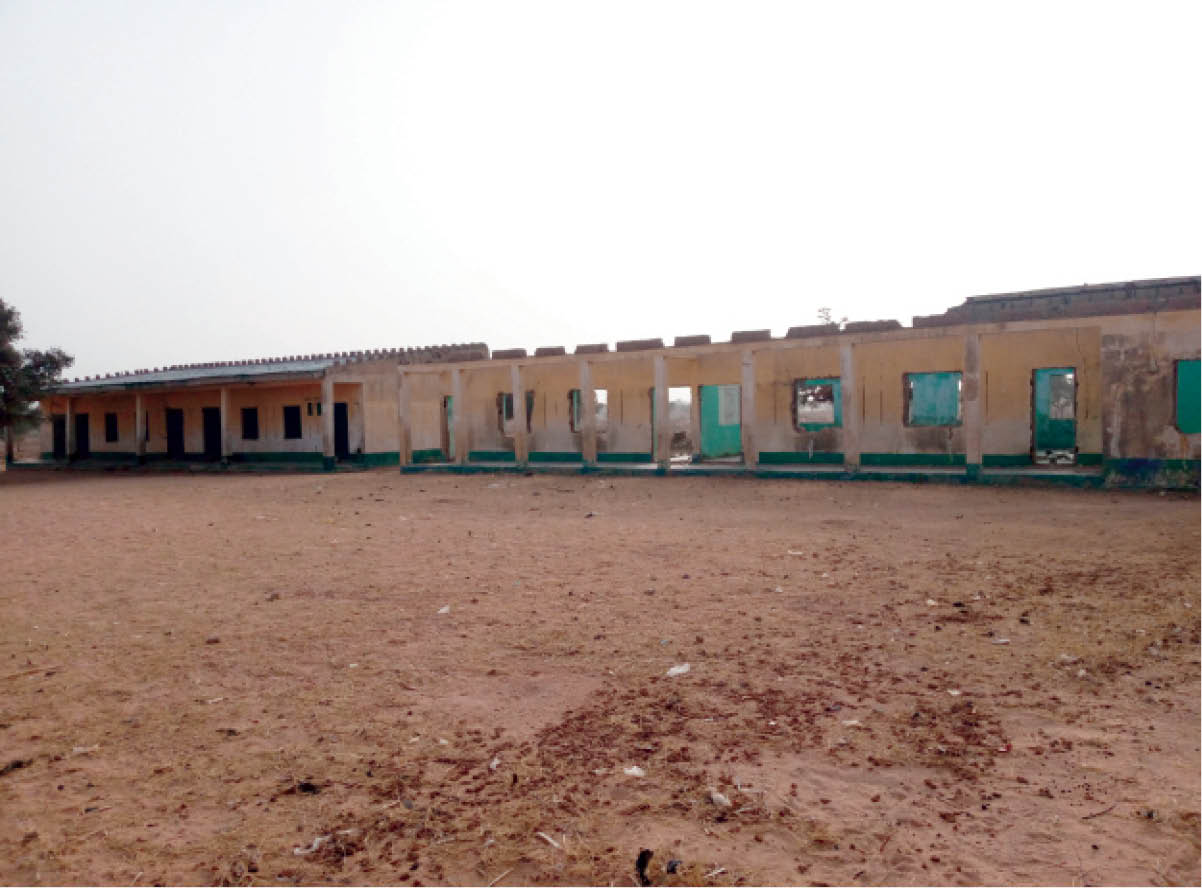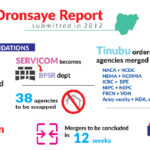Now that the federal government has said it will fully implement the Oronsaye Committee report on the restructuring of Ministries, Departments and Agencies (MDAs) as part of efforts to reposition the civil service and cut costs, the intent is raising anxiety among stakeholders of some of the affected MDAs.
The civil service being primarily the vehicle for delivering government programmes to meet the needs of the citizens has been undergoing reviews as the need arises, particularly now more than ever before because of the need to reduce the cost of governance and wastage.
Among several recommendations in the Oronsaye report and the decision of the Federal Executive Council (FEC) is the proposed merger of the National Commission for Nomadic Education (NCNE) and the Commission for Mass Literacy, Adult and Non-formal Education Commission.
As far as the stakeholders are concerned, the merger of these two commissions will create problems as each of them is a specialised entity that caters for a peculiar segment of the society: where the Nomadic Education Commission caters for the nomadic early child care development and education, lower basic and middle basic education, the Commission for Adult and Mass Literacy caters for adults who are mostly sedentary.
- Ramadan: How Muslim women can delay menstrual cycle to fast — Cleric
- Disquiet in CBN as Cardoso retires ‘Emefiele’s directors’
The Nomadic Education Commission, apart from promoting education also supports extension services and animal husbandry, provision of water and sanitation facilities to nomadic schools.
Prior to the introduction of Nomadic Education in 1989, the Nomadic groups consisting of the three categories of migrant population (nomadic pastoralists, migrant fishers and migrant farmers) have the lowest literacy rates in the country ranging from as low as 0.02% in 1989, 2.0% in 1998 and 18% in 2020. The inability of the nomads to effectively participate in the conventional school system had been ascribed to constant migration, physical isolation and unsuitable conventional curriculum, climate change and insecurity characterised by banditry, kidnapping, cattle rustling etc.
This group of Nigerians whose population is estimated to be about 46 million are educationally disadvantaged and therefore any attempt to merge the only institution that caters for their specialised education needs will not only be seen as a disservice but as a deliberate attempt to further push them to the fringes of the society.
From its inception in 1989, with 329 nomadic schools spread in the 36 states and the FCT with an enrollment of 7,314 pupils, now has 1,157,217 pupils.
With a population of more than 45.9 million people , the pastoralist, fishermen and migrant farmers’ children remain the most disadvantaged with 5.5 million out of school. As it stands, the merger of the Nomadic Commission and the Adult Education Agency will simply erode the remarkable gains, impacts and breakthroughs the Nomadic Education Commission has made over the years.
For the 35 years of its existence the Commission, was able to produce a crop of well-trained personnel with wealth of experience and expertise with background knowledge and understanding of the culture, needs, aspirations and with developed resilience in the implementing of nomadic specific education.
It is important to emphasize that the Commission over the years has specialised in training of teachers and personnel based on customised textual materials developed with the support of university-based centres, and all these cannot be handed over to another agency with no such capacity and structure.
For these pastoral groups, the only facility they enjoy from government is this nomadic education.
In terms of contribution, this segment of Nigerians own 95 per cent of the national heard made up 20 million cattle, 88 million goats and 50 million sheep and goats.
According to National Bureau for Statistics fishing contributes 1.09 per cent of the country’s GDP.
The fear now among stakeholders is that the proposed merger will erode all the gains made .
In fact the expertise achieved over the years has made it a reference model in nomadic education in other African countries. This success of the nomadic education model has resulted in having a sustained collaboration and partnerships with UNESCO,, UNOCHA, WORLD BANK, UNICEF and the London Commonwealth of learning.
Since its inception, the Nomadic Education Commission has graduated over 1,587,654 who are intellectuals and professionals in various fields. Many are already professors in universities, physicians, veterinary doctors, technocrats, entrepreneurs etc. This success should not be allowed to be erased. The world over, nomadic education in Nigeria is being counted as one of the best and a model to be replicated.
With all the crisis the pastoral communities are embroiled in, it is only with a strengthened and sustained Commission for Nomadic Education that nomads, who are key players in the livestock production system, could have capacity enhancement in needed knowledge and skills for an improved animal husbandry and fishery production .
The assertion of roles and functions overlap/ duplication as a justification for merger does not hold water because the nomadic education programme is based on a philosophy informed by research and development conducted by nomadic education university based centres and the commission, with specialised functions and roles targeted for the mobile, hard to reach , marginalized and disadvantaged groups.
It’s important to note that pastoral communities in Nigeria have all along been sidelined in most government initiatives in the socio-economic empowerment, such as NPower, Tradermoni and the fertilizer initiatives as well as the current humanitarian palliatives. This is even with the loss of over 15,000 people, the displacement of over two million and loss of four million livestock to the current insecurity ravaging the North West and North East of the country.
Government should note the concerns of stakeholders in the education sector, as it relates to the need for the delivery of functional and qualitative basic education to the nomadic communities of Nigeria.
Consideration should be given in the retention of the National Commission for Nomadic Education as an Agency of the Federal Ministry of Education with specialised mandate of ensuring the delivery of functional basic education to nomadic communities.
Adamu sent this from Mallawa Quarters Toro

 Join Daily Trust WhatsApp Community For Quick Access To News and Happenings Around You.
Join Daily Trust WhatsApp Community For Quick Access To News and Happenings Around You.


